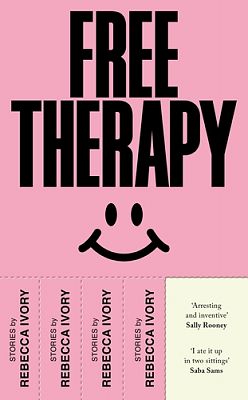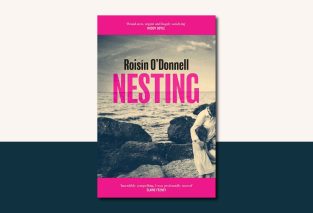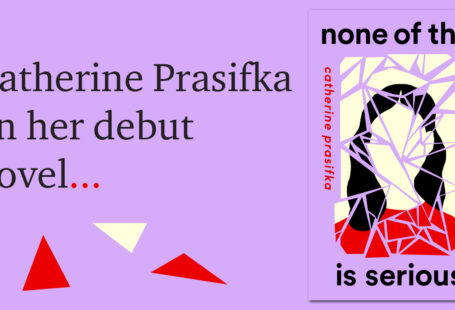Rebecca Ivory author of Free Therapy tells us how she came about to write her debut collection of stories.
I wrote almost half of this book while living in Alberta, a province in Canada. At the time, the writer Tom Morris, who was my mentor, gave me a weekly writing prompt, and from these prompts sprouted the first draft of four short stories. The final versions eventually revealed themselves, sometimes months later. In some cases, it took two years, and dozens of drafts for them to feel like they were finished, or at least as finished as they were ever going to be with me as the author. I like to read about other authors’ experiences, or listen to podcast interviews of writers whose work I enjoy. I especially like when these authors talk about how unsteady the process of writing a book is, and about how few guarantees there are regarding the quality of the work, the timeline, or whether anyone will want to read it. I personally found it comforting to hear this, that doubt was to be expected. During the process of writing this collection, I stumbled numerous times, hitting a wall at different points. And so, when I’m asked now about my writing process, I want to tell people that I’m unsure if I know anything of value about writing, other than I am compelled to do it and it is a repetitive, consistent behaviour that I’ve managed to stick with for many years. It is my favourite thing to do, and I hope I can always do it.

When I re-read the stories in Free Therapy, which now seem to me to be cohesive and interrelated, I can see clearly the ways that my characters are subjected to the same crises in confidence. They don’t know what they are doing, and find themselves stuck in cyclical behaviours. They often worry about being a bad person, but they also lack the integrity to do the right thing. Personally, I love them, but maybe that’s just because I spend too much time with them. I’ve been told that they are unlikeable, and sometimes have been asked to explain their behaviour, as if I am somehow above this behaviour myself and have deliberately fashioned characters who are specifically embarrassing or weak. I believe I wrote these characters as a way to comfort myself and come to terms with my own shortcomings. They try their best to posture and present the best version of themselves, but it rarely works out for them. My hope is that Free Therapy reassures readers who don’t know what they are doing, a category I find myself in all too often, and that they realise that they’re not alone in faking it, we’re all doing it.
Find this in our shops and online!






Recent Comments